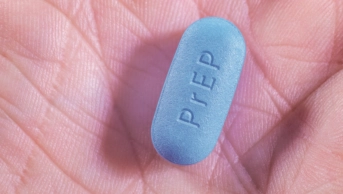
Liewig Christian/ABACA/ABACA/PA Images
The HIV pandemic is not on track to end by 2030 and the world must take immediate steps to rejuvenate the HIV response, following through on its HIV-related commitments, according to a report from a Lancet commission led by the International AIDS Society[1]
.
The report, to be presented at the 22nd International AIDS conference in Amsterdam on 26 July 2018, says HIV tools and strategies are currently “insufficient” and, although dramatic gains can be made through maximising existing prevention and treatment strategies, the HIV pandemic is likely to remain a major global challenge for “the foreseeable future”.
The commission combines the expertise of more than 40 international experts who make recommendations for how HIV and global health can work together to improve the HIV response.
The authors call on HIV and global health researchers, healthcare professionals and policymakers to collaborate to improve the HIV response. They argue that this will be essential to achieve the ambitious global target of ending HIV by 2030, as set by UNAIDS, a United Nations programme on HIV/AIDS, to be achieved using its fast-track strategy. They also call for immediate increased funding to avert another epidemic.
“Global health is beginning to falter as democracy, civil society, and human rights deteriorate in many countries, and as development assistance for health has stalled,” said lead commissioner Linda-Gail Bekker, president of the International AIDS Society and professor at University of Cape Town, South Africa.
“This loss of momentum comes as health systems need to become stronger to contend with the growing numbers of non-communicable diseases.
“Despite the remarkable progress of the HIV response, the situation has stagnated in the past decade.
“Reinvigorating this work will be demanding, but the future health and wellbeing of millions of people require that we meet this challenge,” she added.
The commission recommends that HIV should be carefully and strategically integrated within primary care and the broader global health agenda. It also says countries should focus new investments on vital elements of healthcare systems, including strengthening medical education and training, laboratory systems and quality assurance.
The authors also say that the implementation of pre-exposure prophylaxis (PrEP) will further improve the epidemiological outcome of HIV but that the extent of PrEP-related benefits is limited by the preventive effects of expanded antiretroviral therapy coverage.
The commission said it will work to develop a clear, time-bound plan for implementing its recommendations in the coming year.
References
[1] Bekker L-G, Alleyne G, Baral S et al. Advancing global health and strengthening the HIV response in the era of the Sustainable Development Goals: the International AIDS Society — Lancet Commission. Lancet 2018; doi: 10.1016/ S0140-6736(18)31070-5


